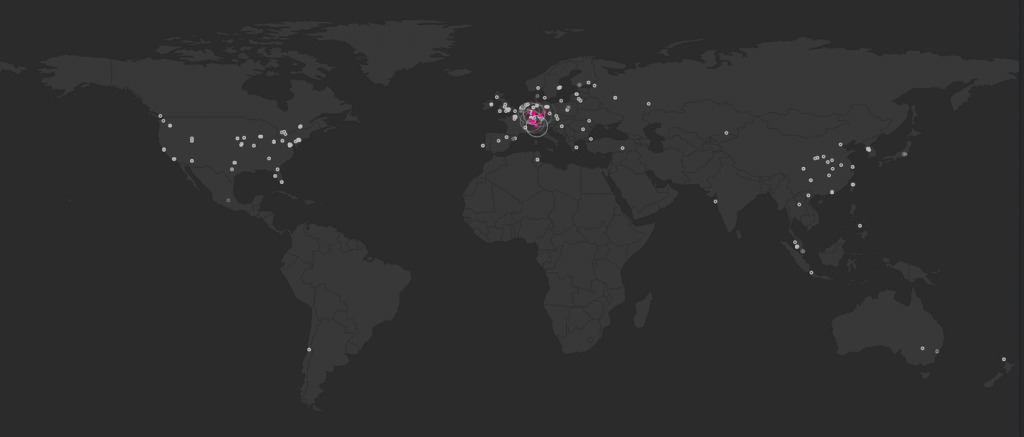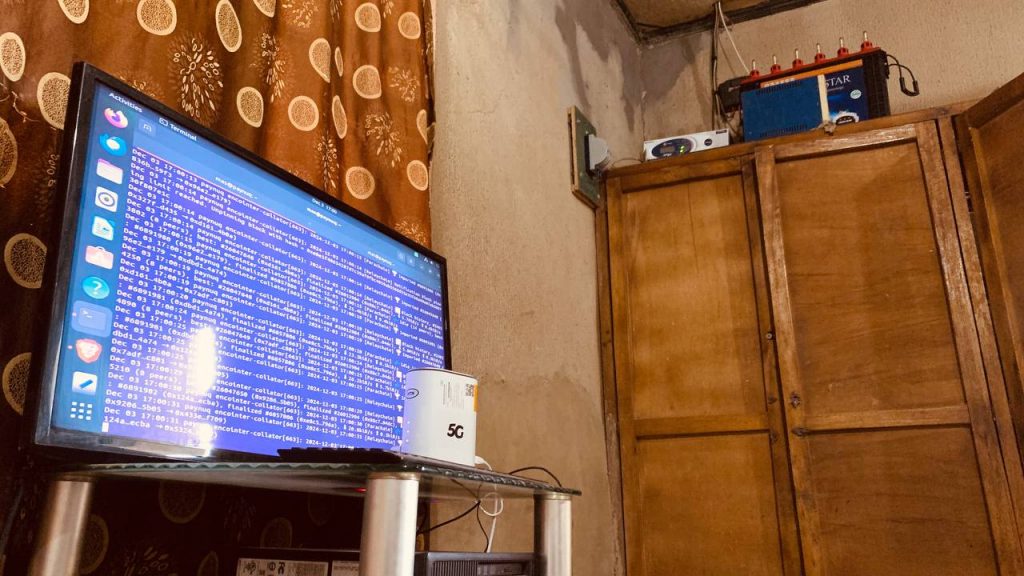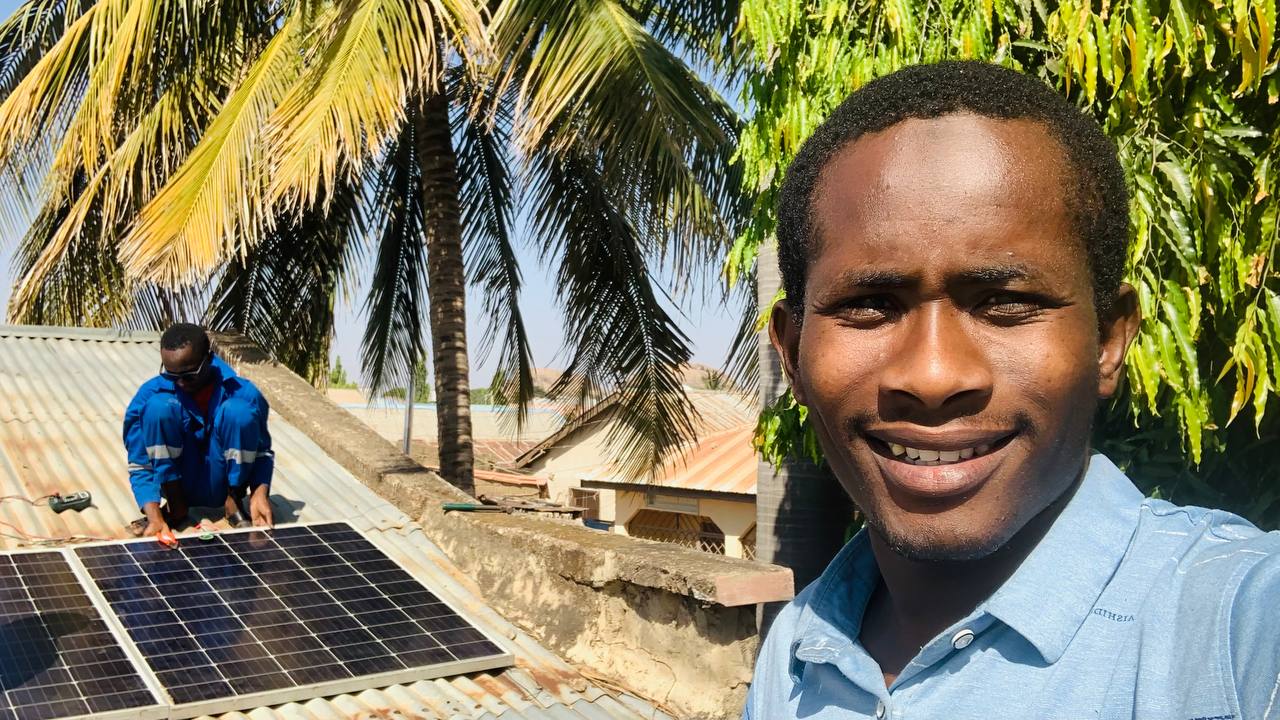A new community in Zaria, Nigeria is preparing to launch their own community currency on Encointer Network. What makes this initiative stand out besides the currency itself, is the independent IT infrastructure they are building to support it. Their efforts benefit not only their community but also the global blockchain ecosystem, as they take strides to improve decentralization and diversify control.
Africa’s Role in Web3
The global blockchain space, including Kusama, which secures the Encointer Network, may well be criticized for being overly concentrated in the Global North. With over 1,500 active nodes distributed globally, most are hosted in North America, Europe, and parts of Asia. Africa, despite being home to 1.4 billion people, is heavily underrepresented in this space.
This imbalance is bad for everyone. The blockchain’s promise of decentralization censorship resistance only goes half-way when the majority of its infrastructure depends on first-world countries and their data centers. The new initiative in Zaria is addressing this by running their own on-premise IT infrastructure, independent of hyperscalers like AWS or Google Cloud.

Global distribution of Kusama Network’s ~1500 active nodes.
The Challenges of Running IT Infrastructure in Africa
Operating productive IT infrastructure in Africa presents unique challenges, including:
- Frequent power outages: Reliable electricity is a luxury in many areas, forcing creative solutions for uptime.
- Unstable Internet connectivity: Intermittent access to the Internet jeopardizes participation in global blockchain consensus.
- Hardware availability: Modern, affordable IT equipment is often difficult to source locally.
Despite these hurdles, the PayNuq community has risen to the challenge. Their IT infrastructure runs entirely off-grid, powered by solar panels and a battery backup to ensure 24/7 operation.

Repurposing Old Hardware for Blockchain Decentralization
Rather than investing in expensive new equipment, the PayNuq community repurposed a 10-year-old HP EliteDesk 800 as a parachain collator for the Encointer Network. The only necessary upgrade? A faster SSD. This DIY approach is a powerful statement, proving that decentralization doesn’t have to mean exorbitant costs or exclusive access to state-of-the-art equipment.
Tackling Internet Connectivity
Independence from the power grid is not enough. The setup also needs uninterrupted internet connectivity. While satellite internet could be an option in the future, it brings new challenges, such as potential monopolization by providers. For now, the team relies on local cellular networks while exploring affordable and sustainable upgrades.
The Bigger Picture: Financial Incentives and Independence
Their efforts don’t just benefit their community—they also make economic sense. The Kusama treasury rewards system chain collators with up to $300 per month for uninterrupted service, providing a steady revenue stream for the PayNuq team. If their infrastructure proves stable, they could expand to run nodes for other systemchains or even become a relaychain validator and build a very profitable business.
Why This Matters
Decentralization isn’t just about technology; it’s about equity, accessibility, and resilience. By creating their own Encointer currency and operating off-grid infrastructure, the PayNuq community is achieving independence from first-world infrastructure operators and foreign currencies to pay for the it.
Moreover, their efforts enhance the Kusama Network’s censorship resistance by diversifying its geographical and operational control. This is decentralization at its best—rooted in local innovation and global impact.
Looking Ahead
As we follow the journey of the PayNuq community, it’s clear that they’re not just building for themselves—they’re setting an example for other underrepresented regions worldwide. Their story is a reminder that blockchain technology can empower communities everywhere, especially when paired with resourcefulness, collaboration, and a commitment to independence.
Stay tuned as the Zaria community grows within the Encointer Network. Their progress promises to be an inspiring chapter in the story of global decentralization.


